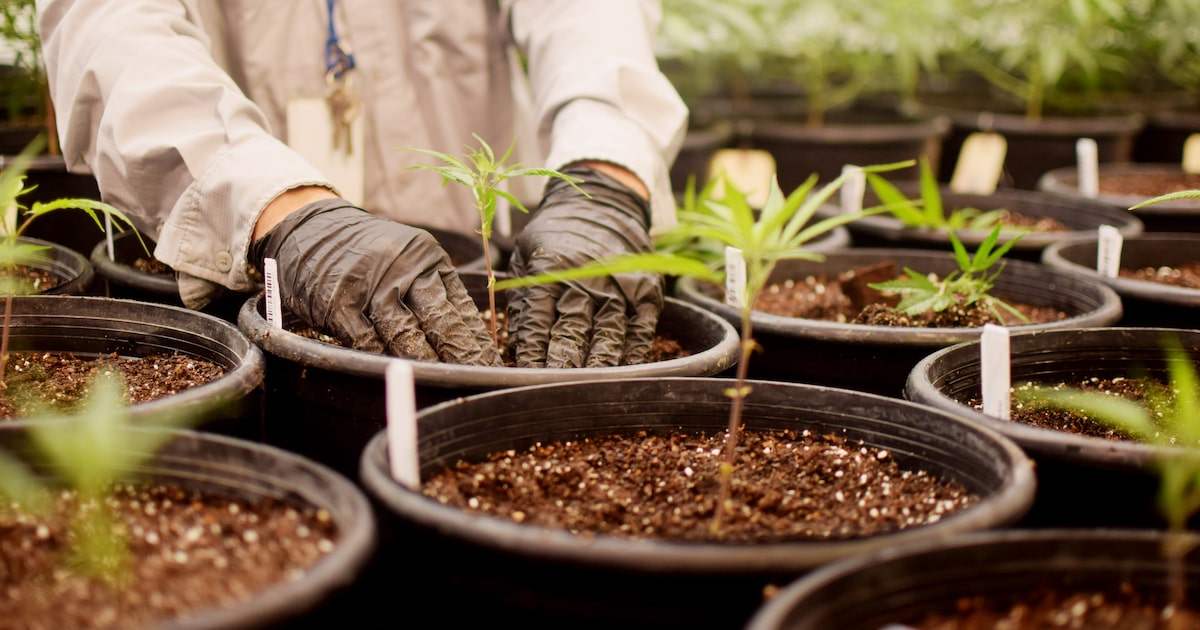AUSTIN __ More Texans would have access to cannabis remedies for conditions like chronic pain and PTSD under a proposed expansion of the state’s medical marijuana program that advanced by unanimous vote in the Texas Senate late Tuesday.
“The majority of people who need and deserve the treatment will have access to it,” said Sen. Charles Perry, R-Lubbock, the bill’s sponsor in the Senate.
The potential widening of the 10-year-old Texas Compassionate Use Program comes after months of wrangling over how to make tetrahydrocannabinol – or THC, the psychoactive ingredient in marijuana – more available to veterans and others who find the program too expensive to purchase, hard to qualify for and cumbersome to acquire.
House Bill 46, by Rep. Ken King, R-Canadian, passed 31-0 on the heels of a blanket ban of unregulated retail hemp-based THC vapes, edibles, smokable flower and other consumables that is headed to Gov. Greg Abbott’s desk.
The ban has earned strong backlash from veterans and others who say the hemp stores have helped them when the medical marijuana program has fallen short.
On Tuesday night, senators during floor discussion of the expansion bill sought to soften that criticism.
“At the end of the day, they’ll know what they’re getting, because a lot of our constituents have been self-medicating … with alcohol, nicotine and now with [unregulated] THC,” said Sen. José Menéndez, D-San Antonio. “So hopefully once this gets up and running, they’ll have the benefit of [a medical marijuana program] that actually works.”
HB 46 now goes back to the House for lawmakers to decide whether they agree with the Senate version or whether they’ll send it to a conference committee for negotiations.
The bill adds terminal illness and chronic pain to the state’s list of conditions that qualify for the program, which already includes post-traumatic stress disorder.
The Senate version removes a section the House backed that would have allowed any military veteran to access the program if their doctor believes it could be beneficial, whether they have one of the listed conditions or not. Perry did not explain that change during Tuesday’s debate.
The legislation also expands the program by increasing the number of medical marijuana dispensaries in Texas from its current 3 license holders to 12, increasing competition and lowering prices, bill authors said.
It would allow 90-day prescriptions with up to four refills – an expansion of current restrictive rules – before a patient has to return for a new prescription. The bill also would allow higher-concentration doses, so less product would need to be consumed to get the benefits, and allow the products to be inhaled through vaporizers or administered through edibles, oils and suppositories.
The legislation also creates satellite storage facilities that could be set up around Texas, allowing the dispensaries for the first time to store product off-site. That means they save money on fuel and travel time, and that patients can pick up their products easily or have them delivered to their homes cheaply.
Lt. Gov. Dan Patrick, a Houston Republican who has championed the program as a remedy to the much-ballyhooed THC ban, said the bill may be the biggest relaunch of a medical marijuana program in the country.
Known by its acronym TCUP, the program is actually among the most anemic in the U.S., with only 20,000 people using it after 10 years in existence. Other more successful state programs have allow for more medical conditions to qualify, such as depression and anxiety, to qualify patients or more streamlined delivery systems.
But it’s a good start, said Sen. Roland Gutierrez, a Democrat who has been pushing for expansion of medical and recreational marijuana laws in Texas and whose San Antonio district has a high concentration of veterans.
He’d like to see a thriving, legal cannabis market and might have supported hemp-based THC shops – had they not sprung up by the thousands, unregulated, in strip malls and gas stations and vending machines on street corners, in the wake of the 2019 farm bill that never intended to legalize them to begin with, Gutierrez said.
Now, the ban is a critical reset to potentially consider a new structure for them down the road, he said – and the proposed expansion of the medical program is equally vital.
“Maybe one day we’ll get to where I want to be,” Gutierrez said. “But I want people out there to know the truth about how we got here, where we’ve been, and where we’re going.”


